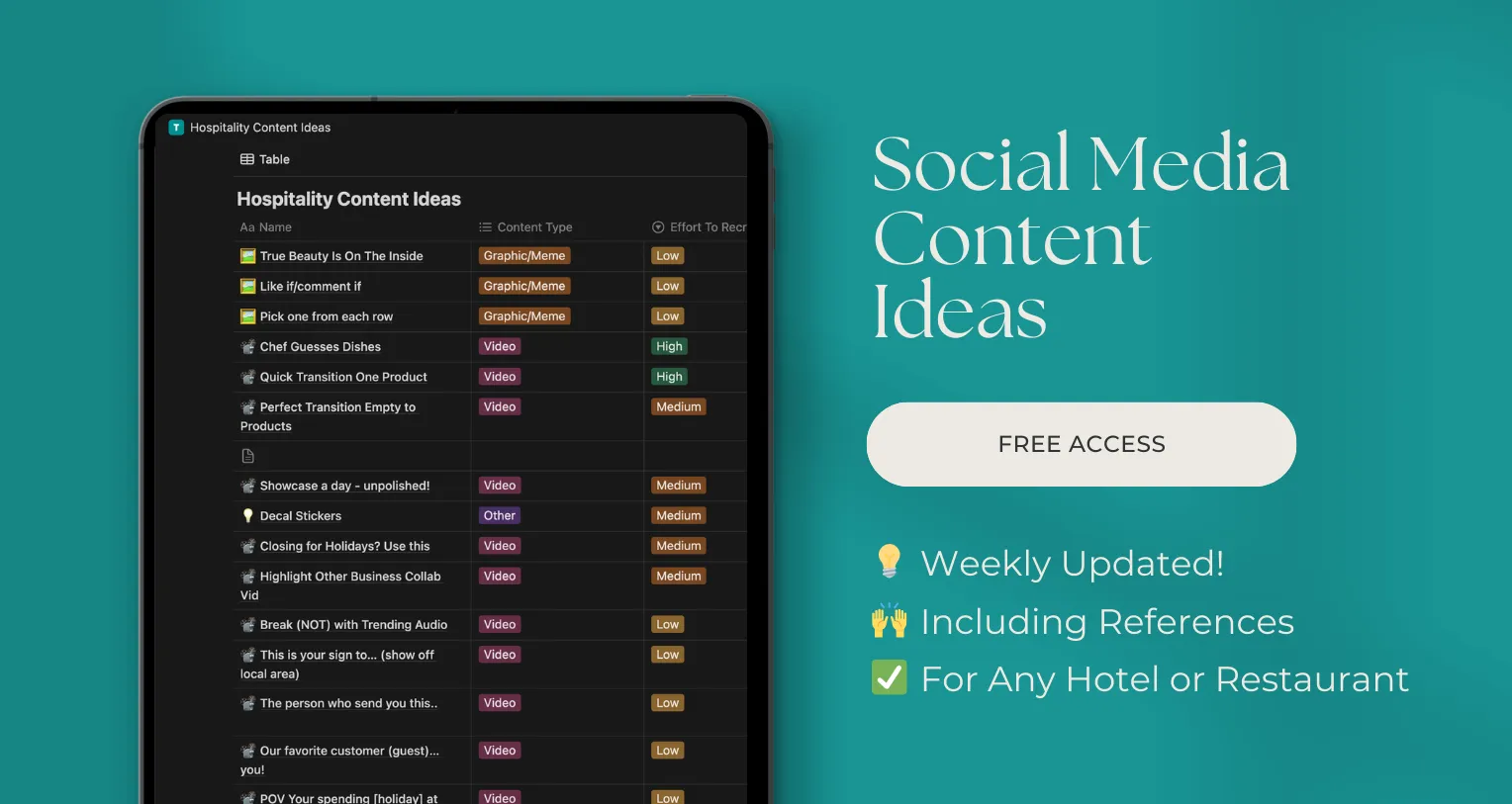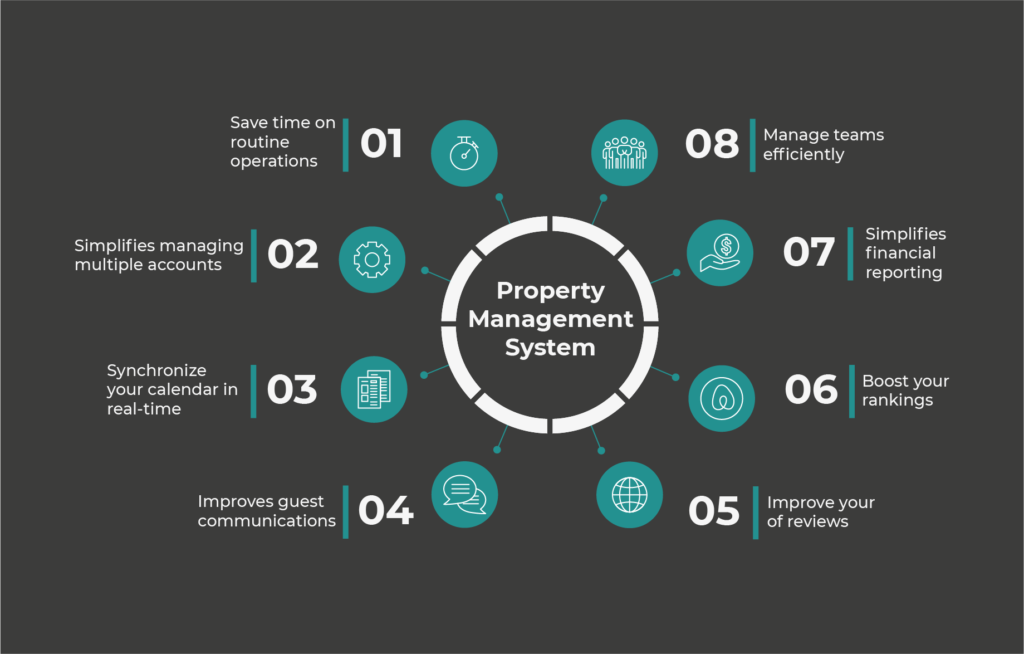If you’ve got a short-term rental—whether it’s a cozy cabin in the woods, a stylish loft in the city, or even a houseboat floating on a canal—you’ve probably wondered at some point: Do I need a Property Management System (PMS)? 🤔
Short answer? Maybe.
Longer answer? It depends on how big your rental business is and how much of your time you’re willing to spend managing it manually. If you’re running a single unit on Airbnb and seeing solid results, a PMS might not be necessary at all. But if you’ve got multiple listings or want to expand to more booking platforms, a PMS can make your life a lot easier.
Table of Contents
- What is a Property Management System, Anyway?
- When Should You Actually Get a PMS?
- How Much Does a Property Management System Cost?
- What If You Don’t Want to Use a PMS?
- A Real-World Example: How Lifty Life Scaled with Hostaway
- Final Takeaways
- Three Things You Can Do Right Now
- FAQs about About Property Management Systems

What is a Property Management System, Anyway? 🛠️
A PMS is basically a software tool that keeps your rental business organized. It helps you:
- Sync your listings across multiple booking platforms (Airbnb, Booking.com, Vrbo, Google Vacations—you name it). No more double bookings or manually updating calendars.
- Keep track of all your reservations in one place. No more flipping between platforms to see what’s booked and what’s still available.
- Manage guest communication from a single inbox. Because let’s be honest—who wants to check Airbnb, Vrbo, and Booking.com separately just to see if someone has a question?
- Handle payments, invoices, and financial reporting (depending on the system).
- Combine multiple listings into one. Perfect if you’ve got a big rental with separate units (like a villa with a pool house and guest cabin) and want to offer it as a whole OR as individual spaces.
Sounds useful, right? But here’s the thing—if you only have one rental, you probably don’t need one. Keeping up with one listing manually isn’t that big of a deal.

When Should You Actually Get a PMS?
Here’s when a property management system actually makes sense:
- You have multiple properties and need to keep track of all your reservations without going insane.
- You want to list on multiple platforms (Airbnb, Vrbo, Booking.com, etc.) but don’t want to manually update your calendar every time someone books. 🔄
- You’re tired of managing guest messages across different platforms and want everything in one place. 💬
- You want better financial tracking—some PMS options help with invoicing, payments, and reporting. 📊
- You’re running a larger vacation rental with multiple units and need a way to group them together or rent them out separately.
If any of the above apply, then yeah, a PMS is probably worth considering. If not? You’re probably fine without one.
How Much Does a Property Management System Cost? 💸
Alright, let’s talk money. PMS platforms have different pricing models, but here are the most common:
- Flat monthly/annual fee – You pay a set amount every month for access to the platform.
- Per-unit pricing – You’re charged based on how many properties you manage. This is good for scaling, but the costs add up.
- Freemium models – Some systems offer basic features for free but charge for premium add-ons.
Pricing varies a lot, so if you’re considering a PMS, make sure you check the fine print. Some platforms also charge transaction fees on top of their base pricing, so don’t get caught off guard.
What If You Don’t Want to Use a PMS?
Good news—you don’t have to! If you’re only managing a single unit, here are some alternative ways to keep things running smoothly:
- Build Your Own Direct Booking Website. 🌐
If you want to take more control over your bookings (and avoid third-party platform fees), consider setting up a booking site using a WordPress plugin. It’s way cheaper than a PMS and can help you build a brand around your rental. - Use a Manual Calendar System.
If you’re only listing on one or two platforms, using Google Calendar to track reservations can work just fine. But be warned—this gets tricky if you expand beyond one or two listings. - Stick to One or Two Booking Platforms.
If you’re seeing solid results on Airbnb, there’s no need to overcomplicate things. A PMS makes sense when you’re juggling multiple listings across multiple sites. If that’s not you, keeping things simple might be the way to go.
A Real-World Example: How Lifty Life Scaled with Hostaway 🚀
Lifty Life, a property management company, started with just one studio apartment. As they expanded to 40 properties across British Columbia and Alberta, managing everything became a challenge. They switched to Hostaway, which helped them:
- List on multiple platforms like Airbnb, Vrbo, and Google Vacation Rentals, getting more eyes on their properties.
- Automate guest communications, with over half of their messages now being automated.
- Streamline onboarding for their 13 full-time staff members, since Hostaway’s all-in-one platform meant less training on multiple systems.
The result? They grew 6x since 2020!
Hostaway has been rated as one of the best Property Management Systems out there. You can learn more about Hostaway here.
🔑 Key Takeaways
- If you’re managing just one rental, you probably don’t need a PMS. Consider setting up a direct booking site instead.
- If you’re expanding to multiple listings or multiple platforms, a PMS can save you time and headaches.
- Pricing varies, so do your homework before committing to a system.
- If you’re looking for a PMS, Hostaway is worth checking out—especially if you’re managing multiple properties.
✅ Three Things You Can Do Right Now
- Look at your current setup—are you spending too much time managing bookings manually?
- Research PMS options to see if one makes sense for your business.
- Consider building a direct booking site if you’re managing a single property and want to cut down on third-party fees.
Final Thoughts 💭
A Property Management System can be a game-changer if you’re managing multiple listings, juggling bookings across platforms, and feeling overwhelmed with guest communication. But if you’ve got just one unit, a PMS might not be necessary—at least not yet.
At the end of the day, your rental needs smart marketing, no matter how many properties you manage. Whether you’re growing your business with a PMS or keeping things simple with a direct booking setup, getting more eyes on your listing is what really drives success.
Want fresh marketing strategies, success stories, and expert tips sent straight to your inbox? Sign up for our weekly newsletter and stay ahead of the game! Join here 🚀

FAQs about Property Management Systems for Short Term Rentals
Do I need a Property Management System if I only have one Airbnb listing?
Not necessarily! If you’re managing just one unit and sticking to Airbnb or Vrbo, you can probably handle everything manually. If you want more control, consider building a direct booking website instead of investing in a PMS.
What’s the best way to keep track of my bookings if I don’t use a PMS?
If you’re only using Airbnb or Vrbo, their built-in calendar should be enough. If you’re listing on multiple platforms, you can sync them manually using tools like Google Calendar, but be cautious about double bookings.
Can I use a PMS with just one property?
Yes, you can! Some PMS platforms offer single-property pricing, but the cost might not be worth it unless you’re really looking to streamline operations or plan to scale up in the near future.
When is the right time to start using a PMS?
If you’re managing two or more properties and listing them on multiple platforms, a PMS can save you hours of admin work and prevent double bookings. If you’re feeling overwhelmed with guest messages and calendar updates, it’s probably time to switch.
Will a PMS help me get more bookings?
Nothing is guaranteed, but likely the answer is “yes”. Many PMS platforms let you list your properties on multiple booking sites (Airbnb, Vrbo, Booking.com, Google Vacation Rentals, etc.), which increases your visibility and can boost occupancy rates.
Which is the best PMS for managing multiple properties?
It depends on your needs! Hostaway, Guesty, Lodgify, and OwnerRez are popular choices for short-term rental hosts. Compare pricing and features before committing to one.
What’s the difference between a PMS and a Channel Manager?
A Channel Manager syncs your availability and rates across multiple platforms (Airbnb, Vrbo, Booking.com, etc.), but a PMS does much more! It automates guest messaging, invoicing, reporting, and even helps with team management if you have cleaners or co-hosts.
Can I switch to a PMS later if I start managing more rentals?
Yes! Many hosts start with manual management and switch to a PMS when they expand. Most PMS platforms let you import existing reservations so you don’t lose any bookings when transitioning.



